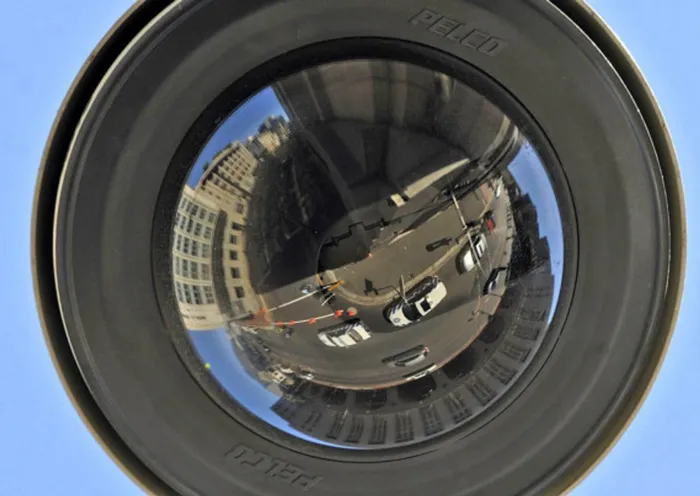Judge orders Camps Bay couple to reposition cameras in CCTV privacy dispute

A Camps Bay couple has been compelled by a court order to reposition their CCTV cameras after violating their neighbour's privacy rights, highlighting ongoing tensions in a long-standing dispute.
Image: File photo: Matthew Jordaan
A CAMPS Bay couple will have to comply with a previous court order that compelled them to reposition their 24-hour CCTV cameras, which currently invade the privacy of their neighbour.
In handing down judgment, Judge Melanie Holderness said the couple’s concerns regarding security, whether real or perceived, “cannot trump the respondent’s fundamental and constitutionally protected right to privacy”.
Judge Holderness said the cameras, which have a clear line of sight into the neighbour's pool and entertainment area, patio/courtyard, and one of his bedrooms, constitute a clear violation of the respondent’s inner sanctum.
All parties to the litigation reside in Bakoven - an exclusive, secluded, and built-up residential suburb on Cape Town's Atlantic Seaboard, nestled between the more bustling suburbs of Camps Bay and Llandudno.
According to court papers: “These neighbours have been at war with each other for almost two decades. Their protracted and litigious history dates back to 2008, when the respondent redeveloped his property.”
In June 2022, the respondent became aware that two of the security cameras installed at the first appellant's property had a clear line of sight into his pool and entertainment area, patio/courtyard, and one of his bedrooms. The curtains of this bedroom had to be permanently drawn to protect the occupant’s privacy.
It was the couple’s contention, in a letter responding to the respondent’s lawyer regarding the repositioning or removal of the cameras, that the cameras were installed “for the sole purpose of personal safety and security, given the worsening economic situation taking place right now in South Africa and the ongoing increase in crime rates in our city”.
In the same letter, the couple accused the respondent of “unchecked paranoia”.
Judge Holderness said: “The startling proposition advanced by the first appellant in her first set of heads of argument is that the actual line of sight was less than minimal and related only to areas where the respondent had no legitimate expectation of privacy due to existing legal restrictions.
“This contention has no foundation, either in fact or in law. By the appellants’ own admission, the cameras capture ‘trafficable’ areas, including the respondent’s pool, entertainment area, and courtyard. This intimate and private domain of the respondent is under 24-hour surveillance and video monitoring. It was shown in the proceedings a quo that in respect of camera ‘C1’, approximately 50% of its viewing angle in respect of camera ‘C2’, and approximately 90% of the viewing angle, is directed at the respondent’s property.”
Giving evidence during the proceedings, the camera installer said that the positioning of the cameras is to provide security, but also conceded that there are alternative locations where the cameras can be mounted to enhance the appellants’ security, but without intruding on the respondent’s privacy.
Judge Holderness further said that the portions of the respondent’s property which are constantly surveilled by the cameras, including the pool and entertainment area, are clearly a zone of ‘intimacy and autonomy’, warranting constitutional safeguarding from intrusive observation.
Cape Times